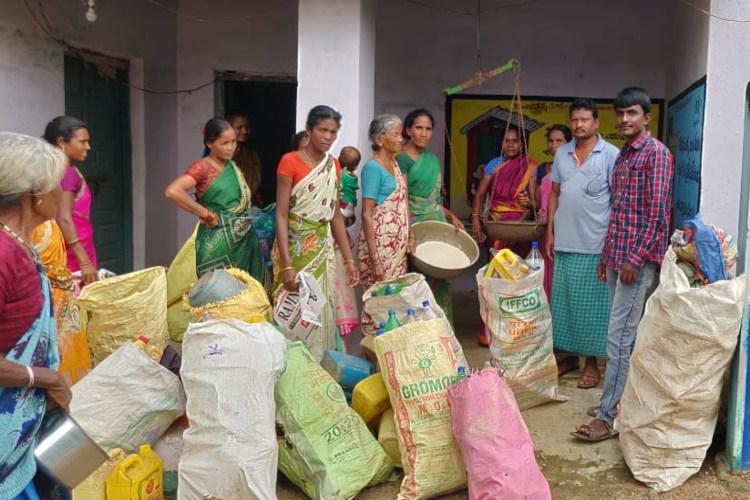EARLIER this month, Chief Minister K Chandrasekhar Rao announced that the state would ban the use of single use plastic. Though the modalities on how to enforce the ban is yet to be finalized, Mulugu, a newly formed district in the state has come up with a plan to eliminate single-use plastic.
For starters, Mulugu District Collector C Narayan Reddy has come up with the ‘1 kg rice for 1 kg plastic’ initiative, which encourages citizens to collect single-use plastics and exchange it for 1 kilogram of rice.
The initiative was started on October 16, and since then authorities have collected 33,200 kgs of plastic. Mulugu has a total of 174 Gram Panchayats, and the authorities had set up single-use plastic collection points in every Gram Panchayat office. “It is very simple, the citizens need to drop the plastic at these collection points and based on how much it weighs, the equal quantity of rice would be given,” District Collector says. The collected plastic would then be sent to cement manufacturing units.
He adds, “Since the rice is of premium quality, everyone is encouraged to participate in the initiative.”
The DC claims the idea for the ‘1 kg rice for 1 kg plastic’ came during a school competition. “In Jakaram village, we held a competition for schools. We promised them a cricket kit if they collected 1,000 kgs of plastic and they performed the task. So, we thought that if we give some incentive, people would actively participate in the programme.”
According to the District Collector, there is overwhelming support from the people for the initiative. “The sponsors for the initiative are the donors, particularly NRIs. Many are donating rice and money for the initiative. Initially, the retailers thought that this was a temporary measure, but we educated them on the harms of single-use plastic and persuaded them. Now, they too are using paper bags,” he claims.
As part of the initiative to combat plastic, the authorities are also distributing free cloth bags, so that the people don’t face any inconvenience while making purchases at grocery stores. The authorities have distributed 35,000 cloth bags. “By paying an honorarium of Rs 300 for each tailor, we hired a tailor in every village. The job of the tailor is to stitch bags for free for those who come with old and new clothes,” he says.
(Courtesy: The News Minute)


